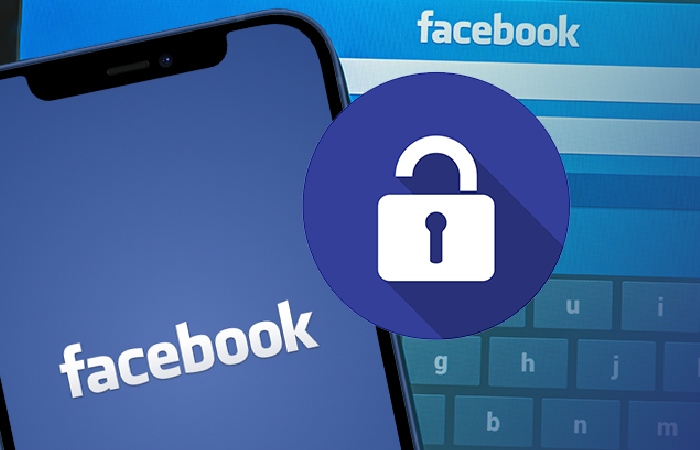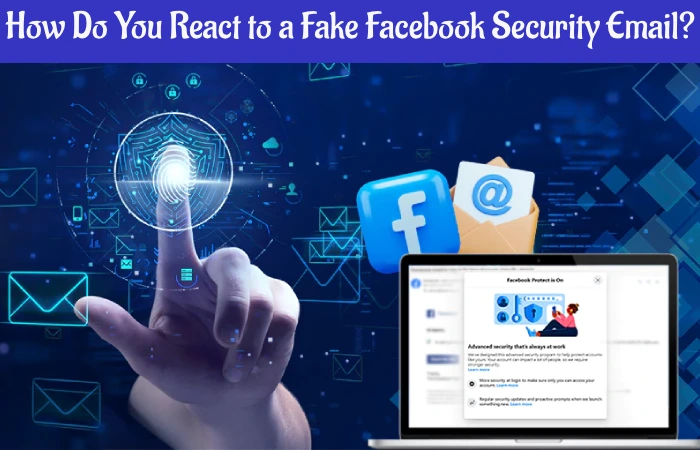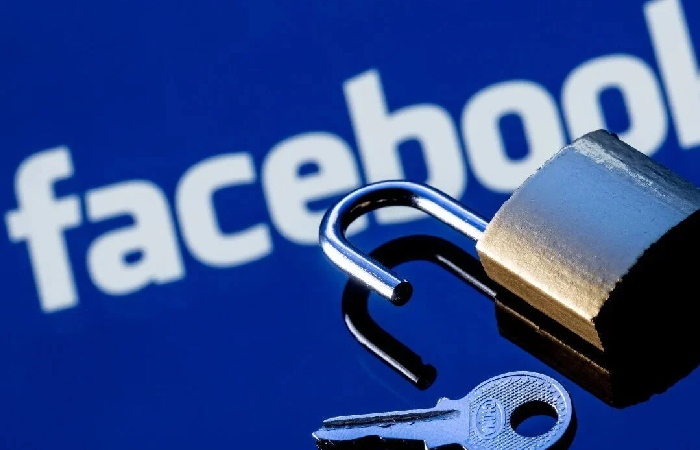Table of Contents
Introduction
Have you received a Facebook security mail from security@facebookmail.com and are now wondering if the email is a scam or legitimate? If yes, you’re not alone, as many people have received this email from the security team at Facebook. In this case, your suspicion is valid because the contents of the email state your account will be suspended.
This doesn’t seem legit, as phrases like these are commonly found in scam emails. With tactics like Mbc222 being within reach of hackers, you need to keep your account safe. The email clearly states that you need to change your account, or else it will get suspended. With a security alert this big, you should ensure that the facebookmail.com email is legit.
Lucky you are, we have addressed every aspect of this topic below. Make sure to read till the end, and you’ll know if you are being scammed and how to stay away from the Facebook jail.
What Exactly Is Facebook’s Security Email?

The email address “security@facebookmail.com” is Facebook’s official security email.
Facebook uses this security email to inform its users about security-related issues concerning their accounts. This could include alerts about unauthorized login attempts, account setting changes, or other activities that Facebook’s system flags as potentially suspicious.
The primary purpose of these emails is to protect users by informing them about their account security and prompting them to take action if necessary, such as changing a password or reviewing recent account activity. Users must recognize these emails and differentiate them from phishing attempts, which often mimic legitimate communications to steal personal information.
How does this Scam Work?
My best guess is that they hope you take a Facebook account on this email and will try to account for the activity by emailing them. Then, they will try to phish your credentials by requesting your password for “verification purposes” or something. Of course, a savvy user will know this as phishing, but unwitting users might think it is legitimate and fall for it.
Security@facebookmail.com
The new Facebook scam starts with an email from security@facebookmail.com telling you there has been a password reset request. This email also includes a password reset code. The email looks super legit, like an official message from Facebook. Hackers can access your account once you enter the code and ask for more personal information, like credit card numbers.
So, how can you protect yourself from becoming a prey of this scam by hand? First, always be wary of password reset emails from unfamiliar email addresses. Also, I recommend enabling two-factor authentication (I did this the other day) so that hackers cannot easily access your account even if your password is compromised. An easy one is to make sure your passwords are strong and unique and that you update them regularly. If you get an email that looks like it may be from someone unfamiliar, don’t open it. If you do happen to open it, DO NOT click links inside the email.
How do I Ensure that the Email I Received from Facebook is not a Scam?
Here are a few ways to ensure that email sent by Facebook Protect is not a scam.
Ensure the email address matches the official Facebook security address (mentioned above).
Ensure the email doesn’t contain any link to redirect you to a different page. Facebook doesn’t ask you to click on links to enable the Facebook Protect feature.
Visit the Facebook account security settings on your device. Here, you can view the recent emails sent by Facebook to you.
How Do You React to a Fake Facebook Security Email?

If the email requesting that you enable Facebook Protect is a scam. You should, therefore, exercise caution to avoid falling into any of its traps.
Avoid clicking on any embedded links or buttons that advertise activating Facebook Protect or claim to allow you to log in.
Do not download or open any attachments that were included in the email. If not, malware could infect your device or take control of your browser.
Take a screenshot of the email and send it to the Facebook forums or grievance redressal cell so that they can take due action to deal with such scams.
You should also delete the email and block the sender’s email address. This prevents them from using that account to launch further phishing attacks, preventing you from falling for them.
How Does the Email From Security@facebookmail.com Appears?
Facebook has begun sending a unique security email from “security@facebookmail.com” to accounts with high viewership, vital pages, or significant community impact.
According to Facebook, the recipient may be more vulnerable to attacks from online criminals because they have a larger audience on the network. The email instructs recipients to enable the limited-access Facebook Protect feature on their accounts to add an extra layer of security.
Usually, email looks reliable when you run your eyes over it, thanks to AI tools. But when you look deeper, some emails ask users to activate this protection option by a specific deadline. This raises many questions, and the credibility of that mail becomes dicey.
How to Tell if a Facebook Email Is Legitimate?
To determine if an email from security@facebookmail.com is legitimate, there are a few things you can check.
Check the sender’s email address.
The email should come from security@facebookmail.com. Be wary of any slight misspellings or variations of this address, as those are likely phishing attempts.
Examine the content and tone.
Legitimate Facebook emails will address you by your first name, contain specific details about your account, and have a professional tone. They will not demand money, account access, or personal information. Be suspicious of poor grammar, threatening language, or urgent requests.
Hover over links before clicking.
Roll your mouse over links without clicking to view the actual URL. Legitimate Facebook links will contain “facebook.com.” Do not click links that contain strange or unfamiliar website addresses.
How Should You React to a Real Facebook Security Email?

First, determine if it complies with the fundamental security criteria for security@facebookmail.com. If so, activate it for your protection, and you can activate Facebook Protect by responsibility the following:
Log in to your Facebook account with your credentials.
In the top-right corner, select the Profile symbol.
Select Settings under Settings & privacy.
In the left sidebar, select the Security and Login tab.
In the box next to Facebook Protect, click Get Started.
Then, follow the on-screen instructions to enable Facebook Protect.
What to Do if You Fall Victim to the security@facebookmail Scam?
Let’s look at what you can do if you fall prey to the security@facebookmail scam.
Try to retrieve your Facebook account as soon as possible, god forbid if you have accidentally clicked on any mysterious link.
Check to see if the permissions on your Facebook pages have tamper with. Examine the most recent posts you have made with your account, the comments you have received on your profile, and any other behavior that could harm your reputation.
You will also need to change all of your credentials previously associated with payment apps or websites that used your Facebook account to log in.
Avoiding Facebookmail.com Scams and Safeguarding Your Facebook Account
It would help if you were wary of potential scams related to Facebookmail.com as you navigate your email inbox. While the email itself is legitimate, scammers may attempt to exploit the trust associated with Facebook’s name. To protect yourself and your Facebook account, it’s vital to understand how to identify and avoid these scams.
Common Scam Tactics
Scammers may send emails that mimic official Facebook communications, urging you to click on links or provide sensitive information. These emails often claim to activate Facebook Protect or request login credentials. It’s important to note that Facebook does not include links or buttons in their security emails. This simple rule can help you differentiate between a legitimate email and a scam.
Remember: Facebook does not ask for your login credentials or sensitive information via email. If you receive an email requesting such information, it is likely a scam.
Safeguarding Measures
To safeguard against Facebookmail.com scams, there are several steps you can take:
Do not click on any links or buttons in suspicious emails.
Avoid providing your login credentials or sensitive information in response to these emails.
Block the email sender and delete the email to prevent further phishing attempts.
Regularly monitoring your Facebook account for any unauthorized activity and take immediate action if necessary.
Following these safeguarding measures, you can protect your Facebook account and personal information from scams.
How do you Check Whether an Email from Securityfacebookmail.com is Legitimate?

Yes, facebookmail.com is legit. However, this does not rule out the possibility that hackers are after it to phish Facebook users. As a result, you must understand how to distinguish between a fake and a genuine Facebook Protect email.
Let’s look at some points you should consider before enabling Facebook security features.
Facebook usually uses this email address “security@facebookmail.com” when sending emails for security updates or enabling the Facebook Protect feature. If the email address is different, you could be the target of a scam.
It is critical to remember that these emails should not request login information or personal information. Genuine communications from Facebook or any other reputable organization do not encourage customers to send sensitive information via email.
Facebook does not allow users to check in directly from the email, nor does it include a link in the email that activates Facebook Protect. As a result, if the email you received contains buttons and links, it is a scam.
Conclusion
Use the security@facebookmail.com email address to report any security vulnerabilities you encounter while using Facebook, as it is their official email address in cases of user security. However, scammers are skill at copying and posing as legitimate emails. Understanding the Facebook Protect email context should hopefully make differentiating between bogus and legitimate emails easier.
Related Searches
security@facebookmail.com
Facebook • security@facebookmail.com
<security@facebookmail.com>
security @facebookmail.com
security@facebookmail.com>
Facebook <security@facebookmail.com>
security@facebookmail.com.
is security@facebookmail.com legit
<security@facebookmail.com
security@facebookmail.com fake
Facebook security@facebookmail.com
security@facebookmail.com scam
security@facebookmail.com 2020
is security@facebookmail.com real
what is security@facebookmail.com
